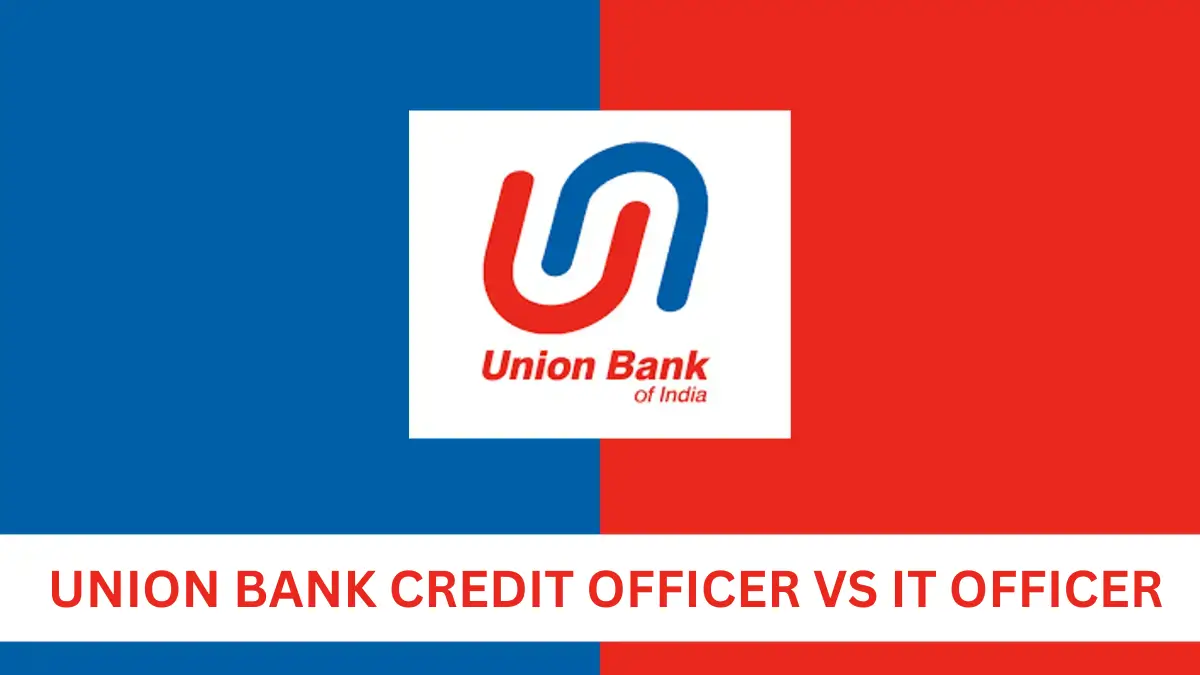When preparing for the Union Bank of India (UBI) Specialist Officer (SO) Exam 2025, it’s important to understand the differences between the roles of Credit Officer and IT Officer. These positions require different skill sets and responsibilities. The exam pattern also varies depending on the role. By knowing the specific tasks and qualifications for each position, you can focus your preparation. Whether you’re interested in financial analysis and credit management or in technology and system management, understanding these differences will help you choose the right path.
Union Bank Credit Officer vs IT Officer – Key Differences in Role & Exam
Both the Credit Officer and IT Officer positions offer excellent career opportunities in the banking sector. Understanding the specific responsibilities and exam patterns for each role will help you prepare and improve your chances of success in the Union Bank SO Recruitment 2025 Exam.
Credit Officer Role
A Credit Officer at Union Bank of India evaluates loan applications and decides whether a borrower is eligible for a loan. They ensure that the bank’s lending processes are safe and profitable.
Key Responsibilities of a Credit Officer
- Analyze financial statements and reports to assess loan applicants’ financial health.
- Decide if a loan application should be approved based on eligibility.
- Monitor the repayment of loans to ensure they are paid on time.
- Ensure that lending practices follow banking rules and policies.
Skills Needed for Credit Officers
- Good understanding of financial analysis and how to assess creditworthiness.
- Knowledge of banking regulations and risk management.
- Ability to create reports and perform financial calculations.
IT Officer Role
An IT Officer at Union Bank of India is responsible for managing the bank’s technology systems. They make sure that everything works smoothly, securely, and is up-to-date, supporting the bank’s digital services.
Key Responsibilities of an IT Officer
- Develop and maintain the bank’s software and applications.
- Manage the bank’s computer network and protect data from security breaches.
- Lead IT projects, upgrades, and handle technical issues.
- Make sure the bank follows all technology regulations and data protection rules.
Skills Needed for IT Officers
- Proficiency in programming, databases, and software development.
- Strong understanding of cybersecurity and how to keep systems secure.
- Knowledge of IT infrastructure and system management.
Credit Officer vs IT Officer Exam Pattern
While the exam format for both Credit Officer and IT Officer positions is similar, the Professional Knowledge section differs based on the role.
Common Sections in the Exam
- Reasoning: 25 questions, 25 marks.
- Quantitative Aptitude: 25 questions, 25 marks.
- English Language: 25 questions, 25 marks.
Professional Knowledge Section
- Credit Officer: 75 questions, 150 marks.
- IT Officer: 75 questions, 150 marks.
Exam Details
- Total Questions: 150
- Total Marks: 225
- Duration: 150 minutes
- Negative Marking: 0.25 marks for each wrong answer.
Professional Knowledge Syllabus
Credit Officer Syllabus
- Financial Management
- Credit Risk Management
- Banking Regulations and Compliance
- Loan Processing and Appraisal
- Accounting Principles
IT Officer Syllabus
- Computer Networks and Security
- Database Management Systems
- Software Development and Programming
- Information Systems and E-Banking
- IT Compliance and Governance
Which Role Should You Choose?
Choosing between Credit Officer and IT Officer depends on your background and interests:
Choose Credit Officer if you have a background in finance, economics, or commerce, and are interested in analyzing credit risks, managing loans, and financial operations.
Choose IT Officer if you have a degree in computer science, IT, or a related field, and are passionate about technology, software development, and managing banking systems.
| Related Posts | |
| Union Bank SO Syllabus | Union Bank SO Salary |
| Union Bank SO Previous Year Question Papers | |





 PNB Apprentice Cut Off 2026, Check Facto...
PNB Apprentice Cut Off 2026, Check Facto...
 Can Final-Year Students Apply for RBI As...
Can Final-Year Students Apply for RBI As...
 PNB Apprentice Recruitment 2026 Notifica...
PNB Apprentice Recruitment 2026 Notifica...








